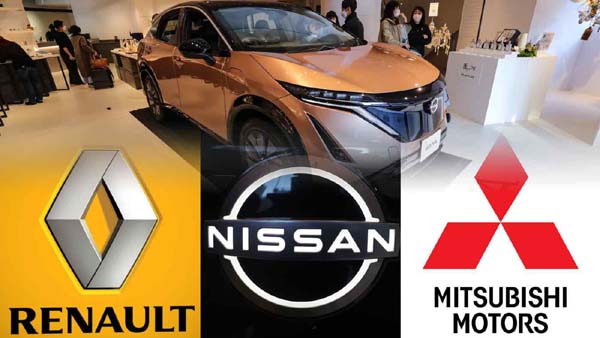
Japan auto giants accelerate electric minicar rollout
Rurika Imahashi
Tokyo: Japan’s top automakers are gearing up to roll out electric versions of the lightweight kei minicars that are so popular with drivers in the country, accelerating the shift to greener transport in the world’s No. 3 economy.
Nissan Motor and Mitsubishi Motors are leading the race to electrify the tiny, nippy cars that are unique to the roads of Japan and are almost entirely supplied by local factories. They plan to launch an electric kei car developed by their NMKV joint venture early in the fiscal year starting in April, with a concept version of the vehicle unveiled this month at an auto show near Tokyo.
“[2022 will be] the first year of electric kei cars,” said Mitsubishi Motors CEO Takao Kato at the event.
The joint venture’s new model will travel 170 km on a single charge and cost at least 2 million yen ($17,500) after government subsidies. That’s a much smaller range than the up to 610 km offered by Nissan’s first all-electric crossover sport utility vehicle, the Ariya, but the price tag is way below that car’s starting cost of 5.39 million yen.
Thanks to subsidies and lower tax rates due to engines that are 660 cc or smaller, kei cars have become an affordable option for many Japanese consumers, especially in rural areas where public transport can be limited. They now account for around 40% of all new cars sold in the country.
According to a survey by the Japan Automobile Manufacturers Association, 75% of kei car owners drive “almost every day” for tasks such as grocery shopping and commuting. They have also become indispensable in helping some people get to places like hospitals, banks and other public facilities.
Car companies say these kinds of short journey are ripe for electrification, with a fleet of new vehicles expected down the road.
Honda Motor aims to launch electric kei minicars in 2024, while Suzuki Motor and Toyota Motor subsidiary Daihatsu Motor plan to market their first electric kei cars by 2025, which they say will be available for around just 1 million yen.
Cheap, affordable EVs are already popular in China, the world’s largest electric car market. The $4,500 Hongguang Mini shifted 364,000 units in the first 11 months of 2021, according to SNE Research. That made it by far the bestselling model in the nation’s overall EV market and placed it second to only Tesla’s Model 3 in the global electric market.
And industry observers expect lower-cost models to gain traction globally. Shigenobu Nagamori, chairman of Japanese motor maker Nidec, in January, said the emergence of the Hongguang Mini was “the direction the car industry is heading.” He said overall global car sales are likely to grow from around 90 million units each year currently to 500 million units, with low-cost mini EVs selling particularly well in Africa, Southeast Asia and Latin America.
But he said that competition would be tough, especially as more companies from beyond the traditional car sector get lured to the market.
Sony Group in January announced plans to form a new electric vehicle business. Globally, well-funded startups and technology companies such as Google owner Alphabet are rushing to develop EVs.
The contest is already heating up when it comes to commercial electric cars.
Sagawa Express, a subsidiary of Japan’s SG Holdings, has decided to replace 7,500 kei combustion engine cars it uses for deliveries with EVs from Chinese company Guangxi Automobile Group.
Another Japanese logistics firm, SBS Holdings, is buying 5,000 small EVs from China’s DFSK, a subsidiary of state-owned Dongfeng Motor. More courier firms are expected to turn to EVs as they face increasing pressure to decarbonize.
Indeed, Seiji Sugiura, a senior analyst at Tokai Tokyo Research Institute, said commercial customers will be the main market for electric kei cars at first, noting that factors such as a shorter battery life in cold rural areas and a lack of charging spots will initially be obstacles to a broader, consumer market.
In the long run, analysts also warn that an influx of low-cost mini EVs from overseas could threaten the current status of kei cars in Japan. “If more mini EVs enter the Japanese market, traditional kei minicars will become less dominant,” said Masahiro Yoshikawa, a car marketing expert and professor at Kumamoto Gakuen University.
And the days of favorable tax rates on kei cars, long criticized by U.S. and German auto companies as “barriers to entry,” could be numbered.
Shigeru Matsumoto, professor at Tokyo’s Aoyama Gakuin University, said it will no longer make sense to distinguish vehicles by engine size as more EVs are launched. “The system in which kei vehicles are given preferential tax treatment is likely to be reviewed,” he said.
